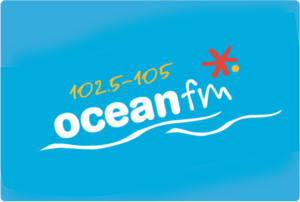
This week Ocean looked at how interdependent the different species in our rivers are and how they can be impacted by Climate Change. We heard that communities can play a crucial part in monitoring for these changes.
Did you know…
- A catchment is an area that catches and collects rainfall and allows it to flow through rivers, lakes and groundwater to the sea. To effectively manage the quality of water in our rivers, lakes and coastal areas we need to look back up along the catchment and understand what happens to water as it makes its journey towards the sea.
- When we fertilise our farmland, we put plant nutrients of phosphates and nitrates onto the land surface and these can be easily washed into streams and rivers by running off the land surface.
- The fish in our rivers are very dependent on the insect life that breeds and lives there. These insects are very vulnerable to changes in air and water temperature.
- Insects such as Mayfly live most of their lives under the surface of the river. They spend more time in the water as larvae and nymphs than they ever will ever spend as a flying insect.
Why is water quality and sampling so important?
- In the 2023 Water Blitz , 18% of river samples had high levels of nitrates, indicative of lower water quality, while 39% of samples taken at rivers had levels of phosphates indicative of lower quality water.
- Where nutrients like these are found to be present in freshwater in large amounts, it leads to an increase in algae and a reduction in the amount of oxygen in the water available for aquatic species.
- By keeping an eye on the different insect species in their local stream or river local communities can provide early warnings of problems in the river food chain.
- Climate change may bring changes to our rivers that we have not anticipated, having a groundswell of citizens scientists feeding in data from across the country, provides an invaluable bank of data that scientists can draw on when addressing these challenges.
Are there changes that I can make at home that will make a difference?
Making small changes in the bathroom and kitchen will have a positive impact on our water.
- Only flush the 3 P’s – pee, paper and poo – down the loo
- Unlike toilet paper, which is designed to disintegrate quickly in our pipes and sewage systems, other items don’t break down easily. Dispose of all bathroom waste in a bin.
- Many toiletries, such as wet wipes, cotton pads and dental floss, are part of the ‘Dirty Dozen’, which are the top 12 items that are incorrectly flushed down the toilet in Ireland. Other items include hair; paper towels; medicine; tampons; food items; contact lenses; condoms; cigarette butts; and cotton bud sticks
- You can download the Think Before You Flush printable resources and stick them up as a reminder
- Switch to reusable options – items like facial cloths and reusable cotton pads are great alternatives
- Dispose of fats, oils and greases from cooking in the bin rather than down the sink
- Wipe and scrape plates and saucepans before washing
- Use a strainer in your kitchen sink, and empty it into the bin
Here are a few websites if you want to know more!
Water quality information and the status of waters can be viewed on www.catchments.ie
https://theriverstrust.org
https://lawaters.ie
https://dcuwater.ie/water-blitz/
https://thinkbeforeyouflush.org


